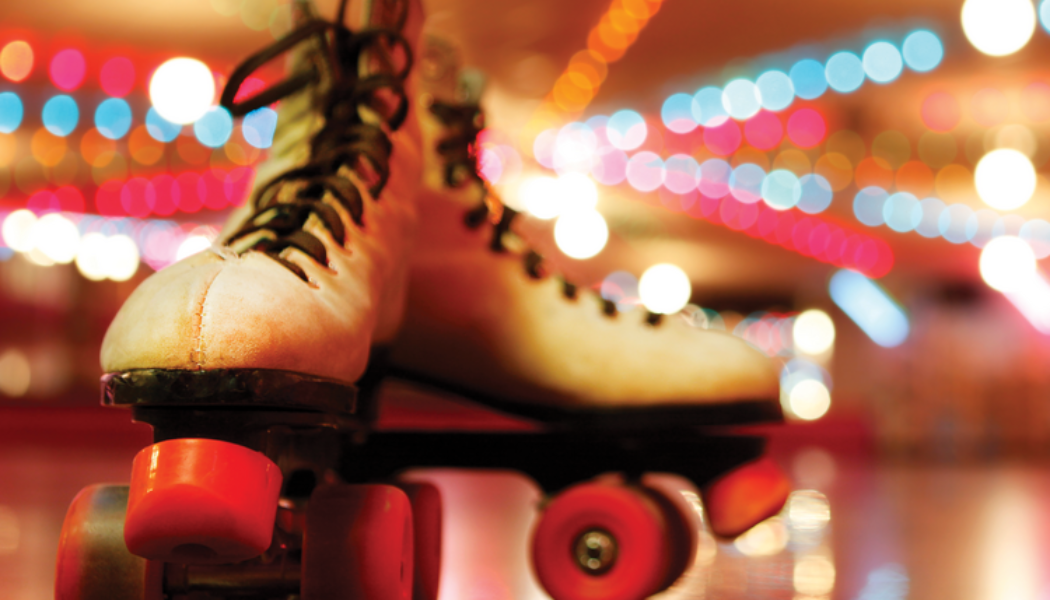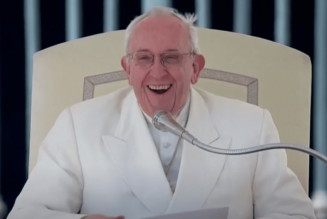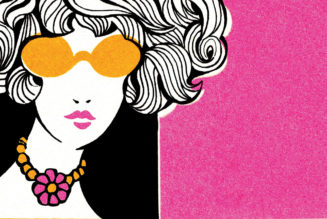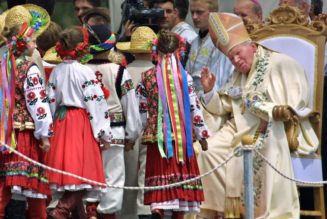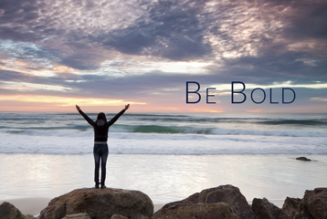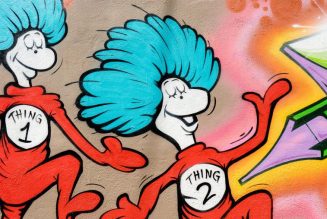
One of the best parts of Christmas, in my opinion, is hearing about how other people celebrate it. It is going to your in-laws’ house and learning that in place of turkey or ham, they eat Polish sausage, or that they open all but one of their presents on Christmas Eve, or that each person has to do a duet with Grandma.
In China people give apples wrapped in colored paper as gifts on Christmas Eve, because the Mandarin word for “peace” sounds like the word for apple. In Greenland they fill their windows with red-orange stars and dance around Christmas trees.
And in Venezuela, they have all-night roller skating, which ends with everyone skating to Mass at dawn.
Yes, you read that right. I, too, had my doubts when I first heard of this tradition—so many that I wrote to a friend at the Jesuit Curia in Rome to see if there are any Jesuits from Venezuela working there who could confirm this is a real thing.
It took him a little while to answer, and when he did, it was with a question: “Are you kidding?”
“I know, it sounds unlikely to me too,” I wrote back. “No,” he responded. “Father General is from Venezuela, you nut. (And by the way, I just saw him and, yes, this is a real thing. Also, you’re fired.)”
Las patinatas, “the skating,” “is most definitely real,” the Venezuelan-born Coromoto Power told me by phone from England, where she and her mother Beatrix now live. “It’s like a mini-festival. There’s just loads of people that turn up in a park, and there’s music. Imagine Central Park, with its paths and so on, and you skate around and sing Christmas songs.”
Is there a lot of drinking? I wonder, thinking of some memorable ice skating events in the Midwest. No, Beatrix clarifies. “It’s a family affair. It’s for kids. It would be coffee and hot chocolate, soft drinks, juice.” It turns out there is no real need for hot toddies in December in Caracas, as it is the height of summer.
While the practice sounds quite secular, Beatrix explained to me that in fact, the all-night roller skating is very much tied to the Catholic faith. “It’s normally the nine days before Christmas (although others do it just on the weekend or on Sunday—with people working and in school, it’s a bit more difficult). You go skating all night, and then to what is called Misa de gallo—the cockerel’s Mass, because it’s at 5 or 6 o’clock in the morning.”
“You go skating all night, and then to what is called Misa de gallo—the cockerel’s Mass, because it’s at 5 or 6 o’clock in the morning.”
The songs being sung in the parks are not ballads from the Venezuelan Top 40 but aguinaldos, religious songs written specifically for Christmas. Coromoto—who was named for a Venezuelan indigenous chief to whom the Virgin Mary appeared—recalls one song that imagines a world in which the Virgin Mary was from the Andes and St. Joseph from another region; “then Jesus would be from Venezuela,” she laughs. “It’s borderline blasphemy,” she kids.
“No no no, it’s not; it’s very beautiful,” her mother interjects, as Coromoto describes additional verses of the song, in which the baby Jesus is reimagined as a Venezuelan infant, with traditional shoes and a special kind of hat.
Each region, Coromoto explains, has its own aguinaldos. “There’s a big regional conflict between Caracas and Maracaibo. They’re the two big cities; there’s a big baseball rivalry,” she says. “So people in Caracas wouldn’t necessarily embrace their song.”
Growing up in Venezuela, Sonia Castillo and her siblings experienced a similar sort of celebration in Caracas, but on a more intimate scale. “It was more of a family affair with us and some of our cousins,” she tells me through her son Alonso Martínez, who translates from Spanish. “We used to go out pre-dawn and skate on the wider streets and stop for fried sweet arepas,” a tasty cornmeal cake filled with things like black beans and avocado, or cheese and steak.
“It was common to see ‘snakes’—15 or more skaters holding on to each other [and moving] at high speeds. Sometimes they spin uncontrolled.”
Ms. Castillo also remembered larger gatherings for more experienced skaters in the Parque Los Caobos in downtown Caracas. “It was common to see ‘snakes’—15 or more skaters holding on to each other [and moving] at high speeds. Sometimes they spin uncontrolled.” Ms. Castillo once tried to join in and ended up with a badly bruised knee.
Beatrix Power notes that escalating violence in recent years in Venezuela has made the bigger community celebrations less common. “In the last 12 to 15 years,” her daughter explains, “things have been escalating. It’s such a gun culture. Safety is a very real concern at this point.” So now skaters are more likely to stay between a few local roads or within a particular suburb.
Coromoto points out that the annual tradition is particularly special because roller skating is not a year-round national fascination of Venezuela. “It’s not like people roller skate all the time,” she says. “It’s just a Christmas thing.”
But why? No one seems to know for sure. Beatrix said while the nine days of cockerel Masses and the aguinaldos have been around forever, the roller skating through the night and then to Mass did not begin until the 1950s.
“It’s not like people roller skate all the time,” she says. “It’s just a Christmas thing.”
Alexander J. Salas, S.J., a Venezuelan Jesuit currently studying in Toronto, thought the tradition might have ties to the United States. “The skates came to Venezuela when our relationship with the United States was very good,” he said. “Many things from the U.S. and Europe came. And families started to create something new from that—that’s my guess.”
It is not a bad one. In the United States, the era from 1937 to 1959 is known as the Golden Age of Roller Skating; there were an estimated 5,000 rinks in operation around the country, and 18 million Americans skating. It was the number-one participatory sport throughout the United States. And, indeed, after Marcos Pérez Jiménez overthrew the Communist government of President Rómulo Gallegos in 1952, the relationship between Venezuela and the United States expanded.
Mr. Salas noted that the practice of roller skating during the last nine days of Advent is part of a much broader set of Advent customs and Marian practices. “Our Marian devotion is so strong in my state,” he explains. “She is central for us. She brings Jesus Christ.” As such, the months leading up to Christmas are filled with devotions to Mary built around that sense of waiting for Jesus.
In the weeks before Christmas, Venezuelans also embody that sense of preparation for the Lord in various ways. For instance, people will paint their houses, perhaps even buy some new furniture, Mr. Salas told me. “We need to keep our houses beautiful because Jesus Christ will come to our houses,” he said. Then, close to Christmas, children will go through the neighborhood singing and playing instruments indigenous to Venezuela, two of them playing the roles of Mary and Joseph looking for a place to stay. “The other children sing and play instruments while Mary and Joseph go around. The families open their doors and offer hot chocolate and coffee,” Mr. Salas says. “Then we pray for five minutes for the families, for hope and peace at each house.”
Much like St. Ignatius would encourage people to imagine themselves in different scenes of Scripture, Venezuelan Catholics create an ongoing, living tableaux of the Holy Family. “We accompany the Virgin Mary and Joseph to find a house for the baby,” Mr. Salas explains. “We create a very happy moment before Jesus comes.”
Mr. Salas notes that this tradition is especially strong in poorer communities. “In the poor areas everybody knows each other—every child knows every child, every grandmother knows every grandmother. They can create something bigger.”
Maybe that is another part of the blessing of sharing our different experiences of Christmas. Whether we ever get to dance around a Christmas tree in one of the darkest places on the planet or are offered an apple that signifies peace, our stories draw us together into a closer community of love and friendship. We help one another become a more fitting place for Christ to be born.
Join Our Telegram Group : Salvation & Prosperity
